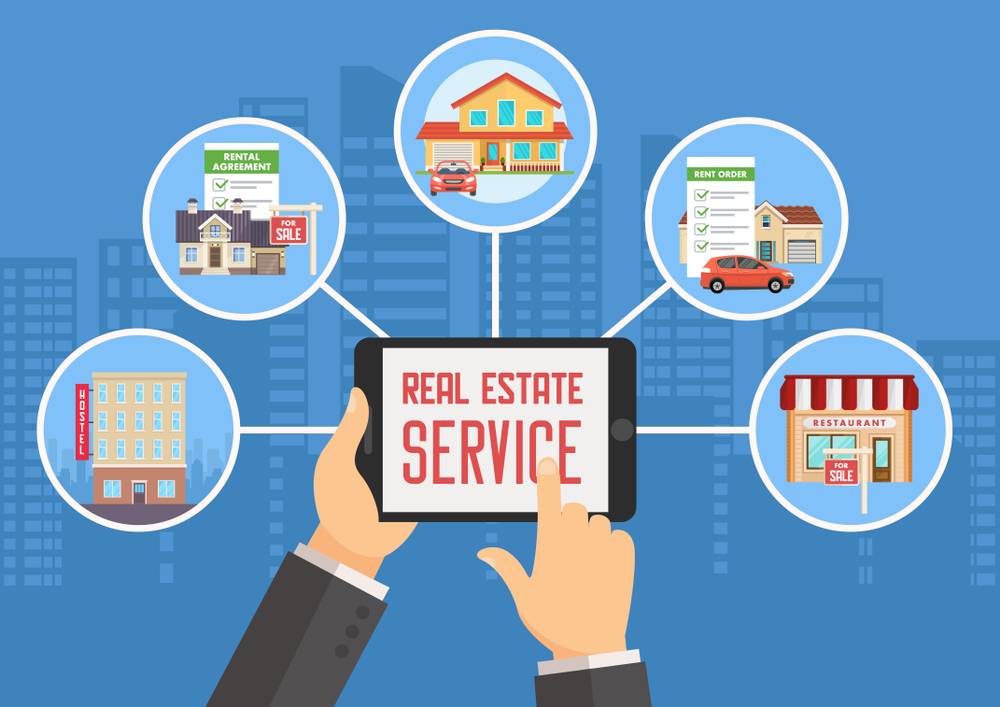Real Estate Marketing & Website Design Services
1. Real Estate Website Design
Key Features for a Real Estate Website:
- Property Listings:
- Include detailed property descriptions, high-quality images, and virtual tours.
- Add filters for price range, location, property type, and size.
- Interactive Map Integration:
- Use Google Maps or custom maps to display property locations.
- Advanced Search Functionality:
- Allow users to search by features like number of bedrooms, amenities, or proximity to schools and shopping centers.
- Lead Capture Forms:
- Include contact forms and call-to-action buttons like “Request a Viewing” or “Get More Info.”
- Agent Profiles:
- Showcase agents’ contact information, specialties, and testimonials.
- Responsive Design:
- Ensure seamless browsing across all devices.
- Mortgage Calculator:
- Provide tools for users to calculate loan estimates.
- Blog Section:
- Share real estate tips, market insights, and community guides to attract organic traffic.
- Integration with CRM:
- Automate lead management and follow-ups through systems like HubSpot or Salesforce.
Platform Recommendations:
- WordPress: Use plugins like Realtyna or Estatik for real estate functionality.
- Wix: Ideal for simpler real estate websites with essential features.
- Custom Development: For large agencies needing unique features like AI property recommendations.
2. Real Estate Marketing Strategies
Digital Marketing Channels:
- Search Engine Optimization (SEO):
- Target location-specific keywords like “apartments for sale in [city].”
- Optimize individual property pages with unique content.
- Pay-Per-Click (PPC) Advertising:
- Run Google Ads targeting high-intent searches (e.g., “luxury homes near me”).
- Use retargeting ads to reach website visitors who didn’t convert.
- Social Media Marketing:
- Share property highlights, testimonials, and market updates.
- Leverage platforms like Instagram for high-quality visuals and reels.
- Content Marketing:
- Write blog posts on topics like “Top Neighborhoods to Invest in [Year].”
- Create video content showcasing properties and local amenities.
- Email Marketing:
- Send property alerts to subscribers based on their preferences.
- Share newsletters with market trends, open house schedules, and new listings.
- Local Listings & Directories:
- List properties on platforms like Zillow, Realtor.com, and Trulia.
- Influencer & Partnership Marketing:
- Collaborate with local influencers or relocation consultants to promote properties.
3. Marketing Plan and Strategies
Step-by-Step Plan:
- Define Target Audience:
- Segment buyers into groups like first-time buyers, luxury buyers, or investors.
- Create Engaging Content:
- Use drone footage and virtual tours to showcase properties online.
- Leverage Local SEO:
- Claim and optimize your Google My Business listing for better visibility.
- Run Seasonal Campaigns:
- Promote holiday-themed offers or discounts for sellers.
- Host Virtual and In-Person Events:
- Organize open houses and webinars on buying or selling real estate.
- Analyze Performance:
- Use tools like Google Analytics and social media insights to monitor campaign success.
4. Tools for Marketing and Tracking
- Content Creation:
- Canva: Create property visuals and infographics.
- Adobe Premiere Pro: Edit property walkthrough videos.
- CRM and Lead Management:
- Salesforce or HubSpot: Automate lead tracking and follow-ups.
- Analytics and Tracking:
- Google Analytics: Monitor website traffic and behavior.
- Facebook Ads Manager: Measure social ad performance.
- SEO Tools:
- Ahrefs or SEMrush: Analyze keywords and track competitors.
5. Results to Expect
- Increased Visibility:
- Boost property inquiries by 40% through targeted SEO and PPC campaigns.
- Higher Engagement:
- Achieve a 30% increase in social media followers with consistent content.
- Lead Conversion:
- Generate qualified leads with tailored email campaigns and retargeting ads.
- Revenue Growth:
- Drive a 50% increase in property sales or rentals by optimizing digital presence.
- Brand Authority:
- Establish a strong reputation in the local market with high-quality content and customer engagement.

